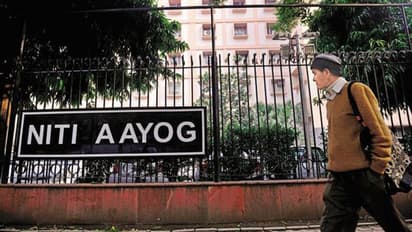
Bengaluru: In order to reduce carbon dioxide emission and save a lot of fuel, India can implement the NITI Aayog, RMI and RMI India’s new report, Fast Tracking Freight in India: A Roadmap for Clean and Cost-Effective Goods Transport, presents key opportunities for India to reduce its logistics costs.
It notes that though freight transport is essential, it is riddled with a lot of logistical problems.
It notes that the country has the potential in the following things:
1. Reduce its logistics cost by 4% of GDP
2. Achieve 10 gigatonnes of cumulative CO2 emissions savings between 2020 and 2050
3. Reduce nitrogen oxide (NOx) and particulate matter (PM) emissions by 35% and 28%, respectively, until 2050
The report notes that as many as 400 million people are expected to move to the cities and freight transport becomes all the more critical.
“Freight transportation is a critical backbone of India’s growing economy, and now more than ever, it’s important to make this transport system more cost-effective, efficient, and cleaner. Efficient freight transport will also play an essential role in realising the benefits of existing government initiatives such as Make in India, Aatmanirbhar Bharat, and Digital India,” said Sudhendu J. Sinha, Adviser (Transport and Electric Mobility), NITI Aayog.
It adds that a whole system transformation can help uplift the freight sector.
“This transformation will be defined by tapping into opportunities such as efficient rail-based transport, the optimisation of logistics and supply chains, and shift to electric and other clean-fuel vehicles. These solutions can help India save ₹311 lakh crore cumulatively over the next three decades,” said Clay Stranger, Managing Director, RMI.
The report outlines solutions for the freight sector related to policy, technology, market, business models and infrastructure development.
The recommendations include increasing the rail network’s capacity, promoting intermodal transport, improving warehousing and trucking practices, policy measures and pilot projects for clean technology adoption, and stricter fuel economy standards.